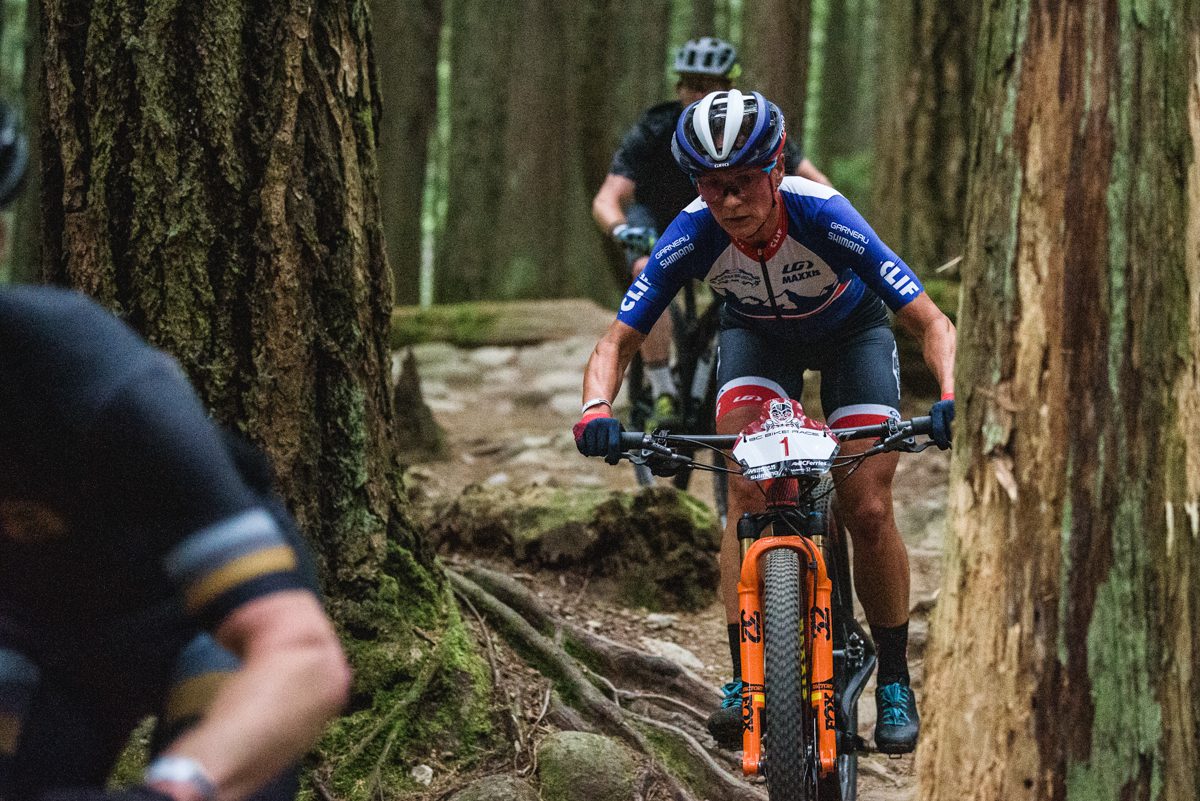Katerina Nash cleared after anti-doping test finding
"We always work as hard to try to exonerate the truly innocent as we do to convict those who intentionally cheat" says USADA CEO
 Photo by:
Dave Silver
Photo by:
Dave Silver
Katerina Nash is not at fault, and will not be sanctioned in any way, after returning an adverse analytical finding (AAF) in an out-of-competition anti-doping test.
Both the U.S. Anti-Doping Agency (USADA) and the Union Cycliste Internationale (UCI) confirmed that Nash will not face any sanction.
Dog medication to blame
The AAF was returned by Nash in an out-of-competition test in late October 2022. The AAF was triggered by trace amounts of Capromorelin. Capromorelin is an appetite stimulant. USADA’s investigation found it was contained in the liquid prescription pet medication that Nash was administering to her dog during the final weeks of her dog’s life. The USADA conducted a study that established that coming into direct contact with the ped medication would have led to a positive test at the trace level of Nashe’s sample, which were 0.07 ng/mL (70 parts per trillion).
Had USADA not conducted its study, Nash could have faced an automatic four-year suspension.
“If there is no question that an athlete comes into contact with a prohibited substance from a completely innocent source and there is no effect on performance, USADA continues to advocate that there should not be a violation or a public announcement,” said Travis T. Tygart, Chief Executive Officer of USADA. “The rules must change and all of us must wake up and demand a more fair and just global anti-doping system that catches and sanctions intentional cheats who rob clean athletes but does not railroad innocent athletes.”
“As in this case, we always work as hard to try to exonerate the truly innocent as we do to convict those who intentionally cheat,” Tygart added.
Long career of a clean athlete
Nash is currently the president of the UCI Athletes Commission, though she was temporarily suspensed from that position while her case was investigated. Nash has not faced any other doping allegations in her long career, which now spans decades since her first Olympic appearance in 1996. She has appeared in five Olympic Games and won several World Cup races across cyclocross and mountain bike disciplines.
UCI added that in its own statement that it “also acknowledged that Katerina Nash had not acted negligently and was not at fault.”
Capromorelin is not specifically listed on the WADA Prohibited List. But it considered to be a Non-Specified Substance and prohibited in and out of the competition by USADA and the UCI in line with WADA’s lists. Under WADA rules, even a no fault violation must be publicly disclosed.
Nash cooperated fully in USADA’s investigation. The cyclocross and mountain bike racer provided USADA with records of the prescription for her dog’s medication, including how the liquid frequently spilled on her while tring to feed it to her dog over a three-week period.
Room for change
“It’s devastating to think that not washing my hands could ruin my entire career,” Nash said to Associated Press of her 30 year’s in elite sports. “But there’s no regrets. I would not have cared for my dog in any different way. But in the end, I was touching this medicine every day for about three straight weeks.”
Nash still supports the anti-doping system but, like Tagyrt, thinks that her case shows that it needs updating.
“It’s a brutal system,” Nash said. “And it’s quite an advanced system, and it’s there for a reason. But it shouldn’t stop us from making that system better for the future.”
